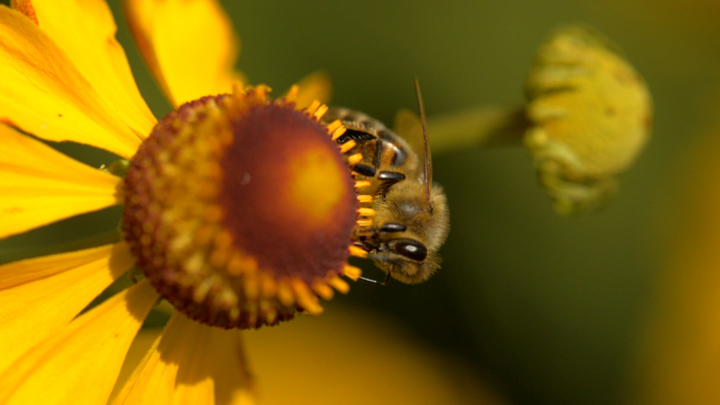TORONTO – Ontario is introducing new regulations to dramatically reduce the number of acres planted with corn and soybean seeds coated with a relatively new class of pesticides known as neonicotinoids, which are toxic to bees.

“A growing body of scientific evidence shows that neonicotinoid insecticides are highly toxic to honey bees and other beneficial insects,” the province said in a release.
Close to 100 per cent of Ontario’s corn seeds and about 60 per cent of soybean seeds are treated with neonicotinoids, figures the province wants to reduce by 80 per cent in just two years.
READ MORE: Banning neonics will have smaller impact on agriculture than industry estimates: leaked draft report
For the 2016 planting season, farmers will be able to use the pesticide-treated seeds on up to 50 per cent of their corn and soybean crops, but must prove they have a pest problem before using any additional neonicotinoids.
Starting in the 2017 planting season, farmers must complete a pest assessment report to prove they need the neonicotinoids before any use will be allowed.
The Ontario Beekeepers Association praised the government “for having the courage to act in the face of intensive lobbying and pressure from the AgChem industry seeking to protect their profits.”
Environmental groups including Ecojustice and the David Suzuki Foundation also applauded Ontario’s move to regulate the use of neonicotinoids to help protect bees, birds and other pollinators.



Comments